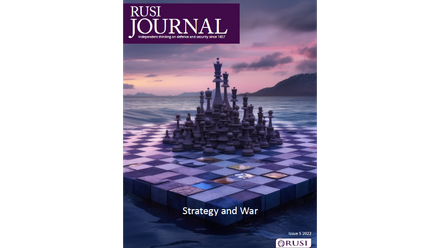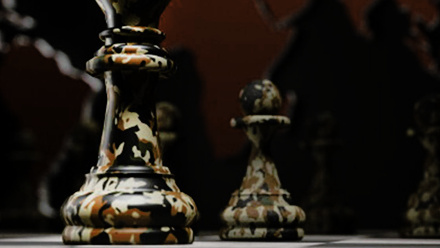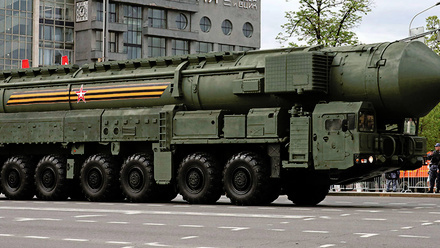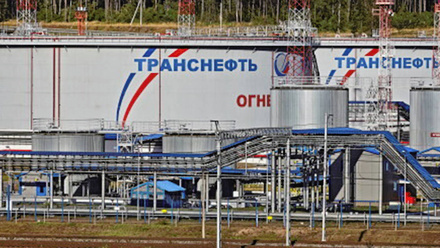Editor's Note (Vol 168 | Issue 5)
As new violent conflicts erupt and global geopolitical tension marks the second half of 2023, the RUSI Journal presents a selection of articles that examine the theory and practice of strategy across time and around the world, with historical analyses informing our understanding of today’s conflict and case studies homing in on specific approaches to today’s challenges.
Shane Praiswater’s essay offers a thoughtful consideration of some of the common assumptions about the meaning and practice of strategy outside of war and during war, and argues for greater precision in distinguishing between strategy and war planning. Anzhelika Solovyeva revisits the historical record to untangle some of the myths about the Soviet interpretation of nuclear deterrence, and thus understand how this legacy influences Russian thinking today. Jan Stockbruegger focuses on a novel approach to sanctions in the context of the war in Ukraine, with a preliminary assessment of the success of the price cap imposed in late 2022 on Russian maritime oil shipments. Intelligence – and assumptions – has always played a fundamental role in shaping how strategy and policymakers see the world: Martin Verrier looks back at US intelligence assessment of Soviet airpower in the 1940s and 1950s, showing how intelligence came to overestimate Soviet jet fighter capabilities and production capacity. Production is also at the heart of Paul Stott’s article on shipbuilding in the UK: in analysing the UK’s National Shipbuilding Strategy, he looks at how the legacy of historical decline has influenced and constrained contemporary industrial policy in this sector.
Considerations of strategy, capabilities and intelligence are essential – yet they can sometimes remain abstract. This can sometimes overshadow the fact that, even in an age of rapid technological development, the human element remains at the core of war and peace, as the reality of the individual human experience. In an article tackling a delicate and difficult aspect of this experience, Harriet Gray, Nicola Lester and Emma Norton take a deep dive into the stories of British servicewomen who have lived through sexual assault and the cultural and institutional responses they faced in the aftermath.
Finally, in the year that RUSI returns to its official residence at 61 Whitehall, Jacqui Grainger looks back at the establishment of the United Services Museum and the inception of RUSI as a military think tank.
Dr Emma De Angelis
Editor, RUSI Journal




